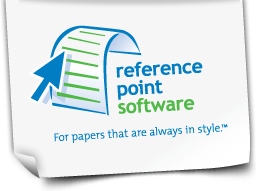6 Ways to Lose Points on Your College Paper
Learning to write well is one of the most useful skills youΓÇÖll acquire while youΓÇÖre in college. How well you write impacts more than the grade you get on your papers today, it can affect the quality of employment you get when you graduate. When you apply for jobs in the future, your grades arenΓÇÖt the only criteria employers review when considering your worthiness for employment. They pay attention to how well you communicate with them in writing, from resumes, cover letters, writing samples, to emails. When youΓÇÖre assigned a college paper, you should look at it as an opportunity to convey your understanding of the subject, as well as an occasion for you to improve your writing aptitude.
Here are six blunders you need to avoid when writing a college paper.
1. Not Answering the Question
Each paper comes with a specific question for you to answer or problem to address. Your grade relies on your ability to respond completely and succinctly. While the quality of your research plays an important role, you can lose points on your college paper by failing to show that you understand the main topic or by simply wandering off the mark. How well you include data from your source materials shows your understanding of the assignment as well as your ability to write well.
2. Offending Your Reader
At times, you may receive an assignment that is controversial or even taboo. When handling these topics, you need to avoid mealy-mouthed rhetoric, as well as to abstain from what could be perceived as abusive language. With that being said, common sense, good manners, and respect for social mores should guide you when youΓÇÖre writing a paper. This demonstrates your ability to address othersΓÇÖ opinions, even if you donΓÇÖt agree with them, and will increase your readersΓÇÖ willingness to consider your points of view because of your level of maturity.
3. Making Spelling Errors
Your audience will form a lesser opinion of your work if you make mistakes that are a result of apparent carelessness or laziness. While using a spell checker is a sensible thing to do, no spell checker will catch poor word choices, homonyms, or typos that create another word other than the one you intended. No matter how brilliant your work may be, these kinds of errors have a negative effect on the reader. Make sure you spell names correctly, too. Spelling errors, especially when theyΓÇÖre the names of your sources or scientific elements, will be detrimental to the quality of your paper.
4. Using Improper Grammar and Punctuation
Grammar and punctuation errors are the most common of the six in this category. The most frequent mistakes in this category include:
- missing or unnecessary commas
- incorrect use of quotation marks
- vague pronoun references
- sentence fragments
- lack of agreement between pronoun and antecedent
- misplaced or dangling modifiers
- lack of agreement between subject and verb
- wrong tense or verb form
5. Relying on One Source for References
College professors will tell you that relying on one source for credible references can be dangerous. For example, Wikipedia is an excellent launching point for some of your research. However, since itΓÇÖs user-edited, it can contain unknown biases and errors. The only way to weed these out is to validate the information through other sources. Where possible, look for three or more sources for any references you cite in your college paper. Other authorship can include books, newspapers, magazines, interviews, and video and audio recordings.
6. Not Adhering to the Proper Formatting Style
When you refer to works by other authors, itΓÇÖs essential that you apply the proper formatting style so your reader can validate them. The citation style will vary based upon the writing format assigned to you by your professor, whether APA, MLA, or another. You need to be aware that these formatting styles go through revisions periodically. To ensure that you meet the latest guidelines, you can research the most recent revisions, or you can save time by using formatting software.
For more information about APA or MLA formats, contact us today.
David Plaut is the founder of Reference Point Software (RPS). RPS offers a complete suite of easy-to-use formatting template products featuring MLA and APA style templates, freeing up time to focus on substance while ensuring formatting accuracy. 
Reference Point Software is not associated with, endorsed by, or affiliated with the American Psychological Association (APA) or with the Modern Language Association (MLA).
